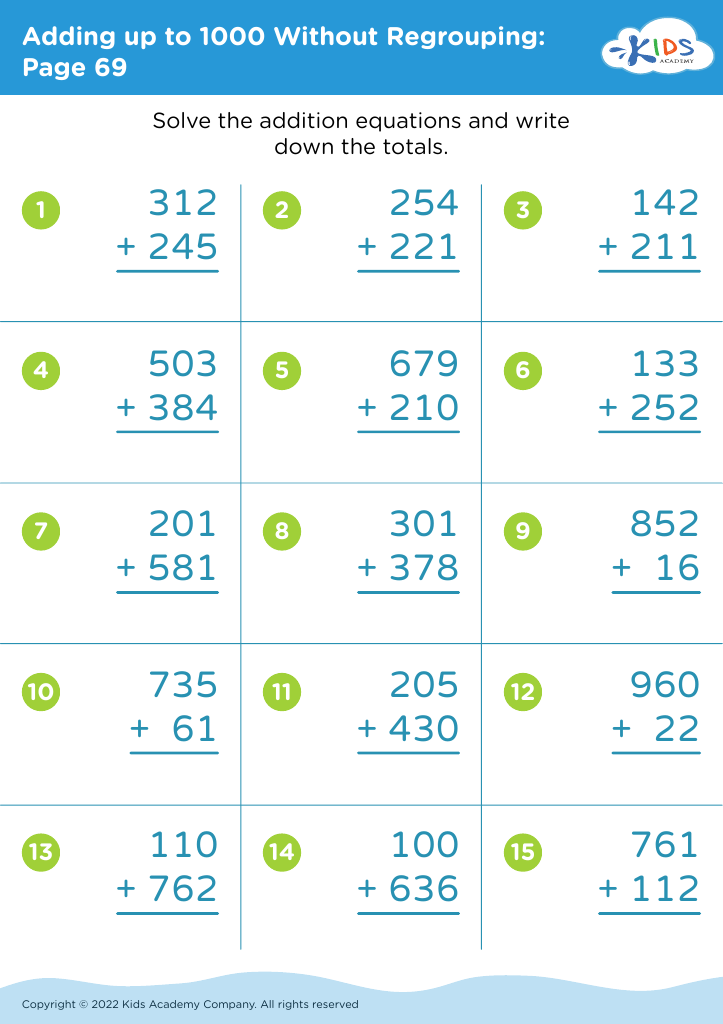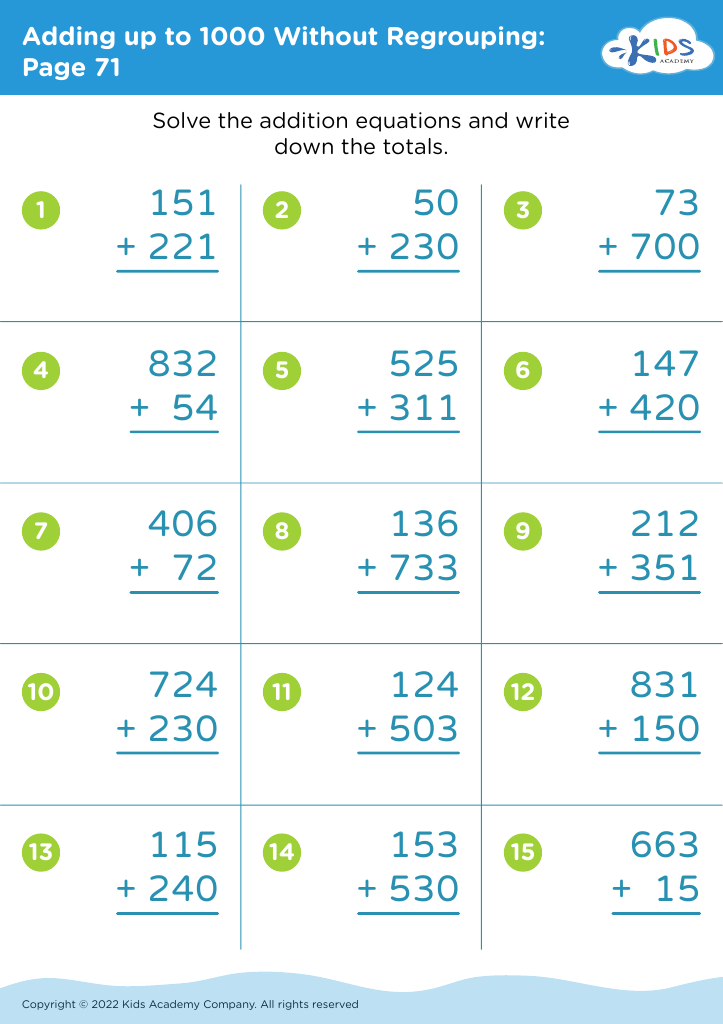Recognize patterns Adding up to 1000 Without Regrouping Worksheets for Ages 3-9
3 filtered results
-
From - To
Discover our "Recognize Patterns Adding Up to 1000 Without Regrouping Worksheets," designed for children ages 3-9! These engaging worksheets help young learners identify and understand numerical patterns while building foundational addition skills. Ideal for reinforcing concepts without the complexity of regrouping, our resources encourage interactive learning and enhance cognitive development. Children will enjoy practicing addition in a fun, visually stimulating format that promotes pattern recognition. Perfect for at-home learning or classroom activities, these worksheets provide step-by-step guidance, fostering confidence in math abilities. Help your little ones master addition through patterns and set them on a path to mathematical success!
Recognizing patterns and adding numbers to 1000 without regrouping is a vital skill for children ages 3-9, as it lays a strong foundation for their mathematical understanding. Patterns help children identify relationships between numbers, enhancing their problem-solving abilities. When learners understand how numbers are structured, they gain confidence, making future mathematical concepts easier to grasp.
For parents and teachers, focusing on this skill can foster critical thinking. It encourages children to work systematically, enabling them to approach complex problems with ease later on. Recognizing patterns is also linked to real-world applications, like budgeting, measuring, and data interpretation, allowing children to see the relevance of math beyond the classroom.
Moreover, integrating pattern recognition into daily lessons can make learning engaging and enjoyable. Interactive activities, such as games or hands-on learning, cater to various learning styles, boosting retention and enthusiasm.
Ultimately, by emphasizing the importance of adding up to 1000 without regrouping through patterns, adults empower children with essential skills that not only enhance their academic success but also promote life skills like organization and logical reasoning. This early focus on math lays essential groundwork for lifelong learning and achievement.













